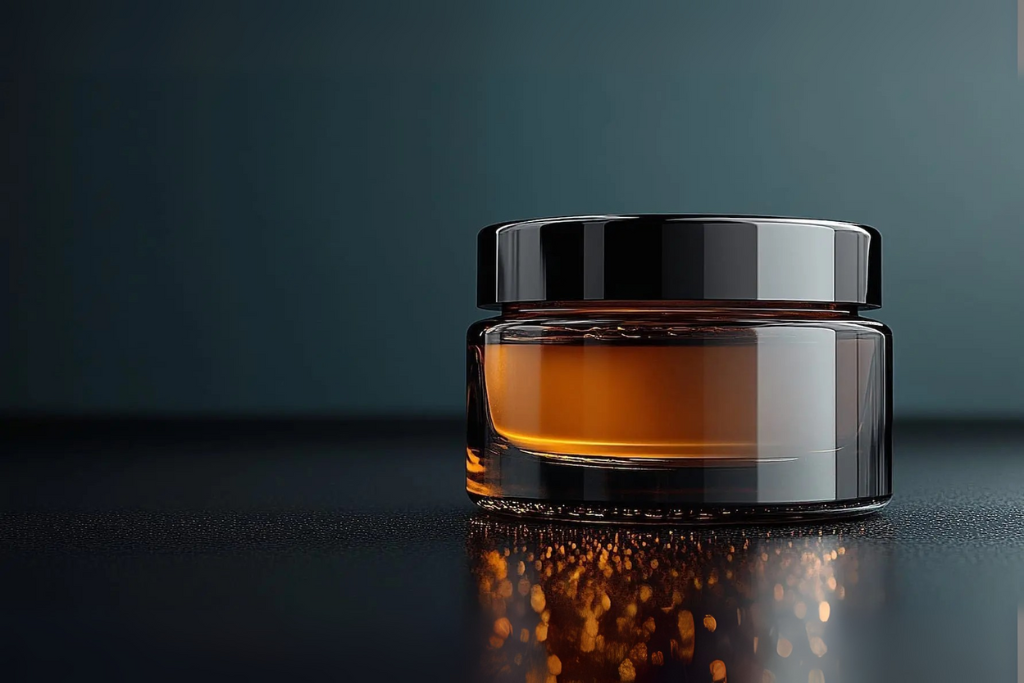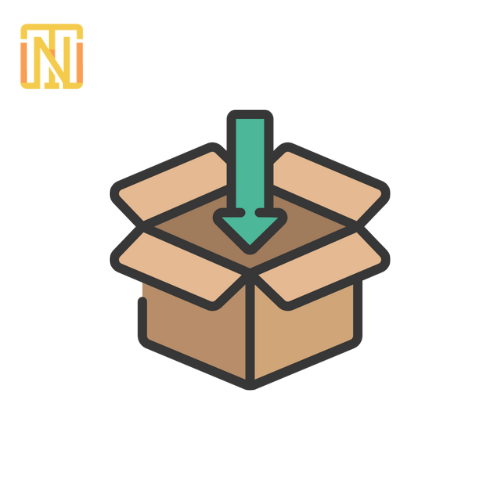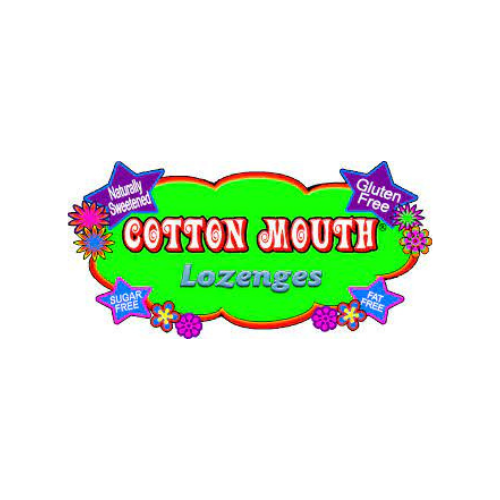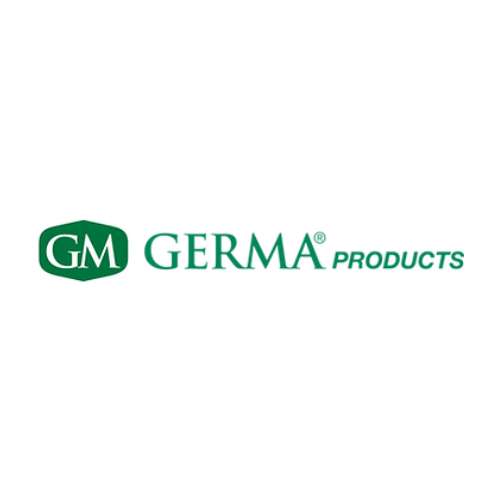
How to Source Authentic Beauty & Personal Care Wholesales amid Counterfeit Concerns
Let’s be honest, shopping for beauty and personal care products should feel exciting, not risky.
But lately? It’s gotten tricky.
Counterfeit products have flooded the market, and they’re not just bad for business; they’re dangerous. From fake skincare filled with questionable ingredients to imitation perfumes that trigger allergic reactions, the stakes are high.
For retailers and resellers, the risk extends beyond unhappy customers. It’s about lawsuits. Damaged reputations. Lost trust.
And it’s not just happening in shady back-alley deals anymore. These fakes show up in polished packaging, on glossy websites, even inside large online marketplaces. Some are so well-disguised, they fool even experienced sellers.
That’s how convincing things have gotten.
So, where does that leave honest business owners? Frustrated. And frankly, afraid to invest in new suppliers.
Sourcing authentic wholesale beauty products has never been more important, or more confusing.
Because let’s face it: product authenticity isn't just a checklist item. It’s a core part of your brand promise. Your customers rely on you to keep them safe and satisfied. That means you can’t afford to guess. You need to know without a doubt that what you’re selling is the real deal.
But here’s the good news: it is possible to spot the fakes, source smarter, and build a supply chain that supports your success, not undermines it.
That’s what this guide is here for.
Whether you’re just starting your beauty business or scaling up, we’ll walk you through exactly how to identify trustworthy wholesalers, what red flags to look out for, and how to protect your brand from the inside out.
Let’s dive in and get it right from the start.
Why Counterfeit Beauty Products Are So Common
It’s a question many ask: Why is this such a big problem now?
The short answer? Demand exploded. And bad actors took notice.
The beauty and personal care industry is booming, worth over half a trillion dollars globally. Consumers are hungry for the latest trends, cult-favorite skincare, and high-end brands. But not everyone can (or wants to) pay premium prices. That’s where counterfeiters step in.
They know the demand. They mimic the look. And they flood the market with fakes.
Sometimes, it’s an obvious knockoff. Other times, it’s eerily close to the real thing. From lipsticks to serums to luxury hair tools, almost no category is safe.
And here’s the real kicker: most counterfeits aren’t just ineffective. They can be harmful.
Think unregulated ingredients. Think dirty production environments. Think long-term skin damage or allergic reactions from unknown chemicals.
Scary, right?
Unfortunately, the problem isn’t limited to sketchy street vendors anymore. Many fakes are sold through online wholesalers, drop-shipping suppliers, or even seemingly reputable platforms. Some even come with fake barcodes and forged documentation.
It’s hard to spot. And easy to fall for.
Plus, smaller retailers often face pressure to stock fast and cheap. When margins are tight and a deal looks promising, it’s tempting to skip thorough checks.
That’s exactly what counterfeiters count on.
But you don’t have to fall into that trap. Understanding the “why” behind the problem is your first defense. It gives you the context to stay cautious, not paranoid, and the confidence to ask the right questions before you buy.
What Makes a Wholesale Supplier Authentic?
Spotting a genuine wholesale supplier isn’t always easy, but it’s completely doable when you know what to look for.
The good ones have patterns. So do the bad ones.
Below, we’ll break down the key traits of a legitimate beauty and personal care supplier, so you can source with confidence, not guesswork.
1. They Provide Verified Business Documentation
Real suppliers aren’t afraid to show you the paperwork. That includes:
- Business registration licenses
- Tax ID numbers
- Import/export documents (if international)
- Product-specific certifications (e.g., cruelty-free, organic)
If a supplier stalls, dodges, or gets defensive when you ask for documents? That’s a red flag.
2. They Partner Directly with Brands or Authorized Distributors
Genuine wholesalers often have direct relationships with brands, or they’re officially authorized by them. This ensures:
- Product authenticity
- Up-to-date inventory
- Proper packaging and labeling
- Consistent batch quality
When in doubt, contact the brand itself and ask: “Is [Supplier Name] an approved distributor?” You’d be surprised how many are happy to confirm or deny it.
3. They Have a Clear, Transparent Digital Footprint
Real businesses leave digital breadcrumbs:
- A professional website (not just a landing page)
- Contact information that checks out
- Verified reviews and testimonials
- Active social media or trade profiles
Pro tip: Search their business name + “scam” or “reviews.” It might save you thousands.
4. They Offer Sample Orders First
Authentic suppliers understand the importance of testing before scaling.
If a wholesaler refuses to send a small sample, insists on bulk-only first orders, or pushes urgency (“limited-time deals!”), Be cautious. High-pressure sales tactics often mask shady operations.
5. They Don’t Overpromise on Pricing
Yes, wholesale should be cheaper. But if the price seems too good to be true, it probably is.
Counterfeiters rely on irresistible pricing to pull you in. Authentic wholesalers typically operate within industry-standard margins. Competitive? Sure. Dirt cheap? Big red flag.
🔗 Looking to expand your product line with reliable, in-demand items?
Check out our guide: How Do I Find the Best Products to Sell on Amazon via FBA?
Red Flags to Watch Out For
You’re scrolling through potential suppliers. The prices look good. The photos are sharp. Everything seems legit. But something feels off.
That feeling? Don’t ignore it.
Even the most convincing websites can be fronts for counterfeit or gray-market goods. Let’s break down the common warning signs that a wholesale supplier might not be what they claim to be.
1. Prices That Feel Suspiciously Low
Everyone loves a deal, but if the price undercuts everyone else by a wide margin, something’s wrong.
Authentic products have baseline production and shipping costs. If the pricing feels like a steal, it might be you who’s getting robbed of quality, trust, and even legal safety.
2. Lack of Verifiable Contact Information
A supplier with no clear address, no working phone number, and a generic email like @gmail.com? That’s a hard no.
You should be able to:
- Call them
- Find their business on Google Maps
- Look up their company registration
If they’re hiding, they’re hiding something.
3. Vague or Incomplete Product Information
Authentic suppliers are specific. They’ll give you:
- Full product names
- Ingredient lists
- Batch numbers or expiration dates
- Brand authorization letters (when applicable)
If you’re seeing blurred photos, no documentation, or unclear origin details, proceed with caution.
4. No Sample Option or Return Policy
Refusing to send samples is one thing. But combining that with a no-returns-ever policy? Huge red flag.
Legitimate wholesalers want you to trust the quality. They’re usually open to small test orders, especially for first-time buyers.
5. Pushy Sales Tactics
Urgency is the scammer’s favorite trick.
If a supplier is constantly pressuring you, “Buy now before stock runs out!” or “Prices go up tomorrow!”, it’s often a distraction from what they don’t want you to look at: their legitimacy.
6. Too Many Glowing Reviews with No Depth
Yes, reviews help, but only when they’re real.
Watch for:
- Overly polished testimonials with no specific details
- Dozens of 5-star reviews were posted in a short time
- Identical reviews across multiple platforms
Do a reverse image search of review photos, or scan for language patterns. If it feels robotic, it might be.
🔗 Curious if Amazon is even the right fit for your beauty brand?
You might want to read: Amazon vs Walmart for Sellers – Which Is Right for You?
How to Vet and Verify a Wholesale Supplier (Step-by-Step)
So, you’ve found a potential supplier. Maybe they look promising. Maybe you’re still unsure.
That’s totally normal.
Trust isn’t built on instinct alone; it’s built on checks, proof, and a little detective work.
Below is a practical, step-by-step guide to help you verify any beauty or personal care wholesale supplier before putting your brand, money, or customers at risk.
Step 1: Check Business Legitimacy
Start simple:
- Ask for their business license, tax ID, and any certifications
- Verify the documents through the government or local business registries
- Look up how long they’ve been in business
Bonus tip: Search their company name + “complaints” or “scam” to catch red flags early.
Step 2: Review Product Certifications
If they sell organic, vegan, cruelty-free, or FDA-compliant products, they should be able to prove it.
Ask for:
- Ingredient disclosures
- Batch or lot numbers
- Certificates from recognized bodies (e.g., USDA Organic, Leaping Bunny, etc.)
No certifications? Be careful, especially if the product makes big health or beauty claims.
Step 3: Request a Sample Order
A trustworthy supplier won’t hesitate.
Use sample orders to evaluate:
- Product quality
- Packaging details
- Shipping timelines
- Communication responsiveness
If the product feels cheap or off-brand, move on.
Step 4: Verify Their Supply Chain
Ask direct questions like:
- “Do you source directly from the brand or a licensed distributor?”
- “Can I contact the brand to verify this relationship?”
- “Where is your warehouse located?”
The more transparent they are, the better. If they dance around answers, that’s a red flag.
Step 5: Search Their Digital Footprint
Use tools like:
- WHOIS domain lookup (to see when the website was created)
- Google Street View (to check physical addresses)
- LinkedIn (to see if employees and company leadership check out)
- Trade show databases (real suppliers often attend beauty expos)
This part feels tedious, but it works.
Step 6: Start Small and Scale Slowly
Once you’ve checked the boxes, begin with a small order. Evaluate:
- Delivery time
- Product accuracy
- Communication during the process
Good first experience? Great. Now scale.
Bad vibes? Cut your losses early.
Building Trust Takes TimeBut It Pays Off
Yes, this process requires patience. But it’s a lot cheaper than the cost of returns, refund disputes, or legal troubles over counterfeit sales.
Trusted Platforms and Directories to Source Authentic Beauty Wholesalers
You don’t have to go it alone. In fact, you shouldn’t.
When it comes to finding verified suppliers, the internet is a blessing and a curse. For every real opportunity, there are ten traps. That’s why it helps to start your search in the right places, where suppliers are vetted, traceable, and often reviewed by other business owners.
Here are the platforms, directories, and companies you can trust to help you source safe, genuine beauty and personal care products.
1. UTN Wholesale – A Reliable Beauty & Personal Care Distributor
If you’re looking for a distributor that blends a wide selection with authenticity, UTN Wholesale is a strong contender.
Why it stands out:
- Specializes in authentic, name-brand beauty and personal care products.
- Offers competitive wholesale pricing without compromising on product integrity.
- Supplies to e-commerce sellers, retail shops, salons, and Amazon FBA businesses.
- Transparent about sourcing, packaging, and shipping.
With an easy-to-navigate platform and a reputation for reliability, UTN Wholesale is a great starting point for both new and seasoned sellers.
2. Faire
Faire is a curated wholesale marketplace connecting brands and independent retailers. While it leans heavily on indie and boutique labels, the vetting process is solid.
- Great for small-batch, artisan beauty lines.
- Net-60 payment terms and free returns on first orders.
- Verified seller profiles and clear shipping terms.
3. RangeMe
RangeMe is used by big retailers like Target and Walgreens to discover new products. But small sellers can benefit too.
- Products are screened for retail readiness.
- Many suppliers offer full documentation up front.
- Useful if you're looking to scale into retail later.
4. Alibaba
Yes, Alibaba gets a mixed rep, but only if you skip the research.
Stick to:
- Alibaba Verified Suppliers only.
- Sellers with trade assurance and detailed transaction history.
- Suppliers who offer branded packaging and allow sample orders.
Always cross-reference details with brand registries and manufacturer directories.
5. Trade Shows & Beauty Expos
If you prefer to meet suppliers face-to-face, trade shows can be game changers.
Look into:
- Cosmoprof (North America, Europe, Asia editions)
- Beautyworld Middle East
- International Beauty Show (IBS)
These events bring together legitimate suppliers, new beauty brands, and retailers from around the world.
Watch Before You Commit:
Even on trusted platforms, do your own verification. Use the steps we covered earlier to double-check business credentials, request samples, and start with small orders.
Building Relationships with Verified Brands and Distributors
Trust doesn’t come from a single order.
While finding a good supplier is a solid first step, building a lasting relationship with them. That’s where the real magic happens.
Especially in the beauty and personal care space, long-term supplier partnerships can lead to:
- Better pricing
- Priority inventory access
- Faster shipping
- Exclusive deals
- And something money can’t always buy: peace of mind
Let’s break down how you can start building those relationships and why it’s worth it.
1. Start with Consistent, Clear Communication
Good suppliers appreciate organized, respectful buyers. Be direct. Be clear. Don’t ghost them between orders.
Here’s how to build rapport early:
- Ask thoughtful questions about their products and processes
- Be upfront about your business goals and target customers
- Respect their time, especially if they’re managing multiple accounts
You don’t need to be their favorite buyer; you just need to be a professional one.
2. Order Regularly (Even in Smaller Quantities)
You don’t have to place huge orders to build loyalty.
Consistency is more valuable than volume. If you prove yourself as a regular customer, even with smaller batches, suppliers take notice. Over time, they may offer:
- Lower minimum order quantities (MOQs)
- Early access to new product drops
- Private label or white-label opportunities
3. Provide Feedback and Ask for Improvements
Suppliers that care want to improve. If the packaging arrives damaged or product labeling is off, let them know, politely but clearly.
The best partners will fix the issue, and they’ll respect you more for your transparency.
4. Stick With Verified, Transparent Companies
Brands like UTN Wholesale aren’t just distributors; they’re long-term business partners.
They’ve already built the systems to ensure product authenticity, brand protection, and seamless order processing. When you stick with trusted distributors like UTN:
- You avoid surprise out-of-stock issues
- You gain access to professional support
- You build trust with your customers because your supply chain is solid
Relationships with the right distributor can help you grow into platforms like Amazon, Walmart, and even retail chains.
Legal and Compliance Considerations
Selling beauty and personal care products isn’t just about finding great deals; it’s also about staying legally safe.
Even if you accidentally source counterfeit items, you’re still liable. That could mean:
- Product recalls
- Lawsuits
- Account bans (especially on Amazon, Walmart, or Shopify)
- Damage to your brand's reputation
Here’s how to protect yourself:
- Only source from verified, documented suppliers
- Keep copies of all invoices and certifications.
- Understand labeling laws (especially for skincare, cosmetics, and health-related items).
- Avoid “gray market” products that were intended for other countries.
A little caution now can save a lot of damage control later.
Conclusion
Let’s face it, there’s no shortcut to building a trusted beauty business. But there is a smart path.
In a market flooded with counterfeits, your ability to source authentic, high-quality products is what sets you apart. It’s not just about avoiding bad reviews or refunds. It’s about protecting your customers. Protecting your brand. And building something that actually lasts.
Yes, vetting suppliers takes time. Yes, asking for documents and doing background checks can feel tedious. But it’s far better than risking your entire business on one bad deal.
Start with trusted names like UTN Wholesale. Use platforms that vet for you. And don’t be afraid to ask tough questions before sending money.
Because your customers are trusting you with their skin, their health, and their confidence.
And that trust? You earn it every time you choose integrity over shortcuts.
FAQs
1. How can I tell if a beauty product is counterfeit just by looking at it?
Not always easy, but watch for spelling errors, off-color packaging, missing safety seals, or odd scents. When in doubt, compare it with an original from a trusted retailer, or order directly from a verified distributor like UTN Wholesale.
2. Is it safe to buy wholesale products from Alibaba or similar platforms?
It can be, if you stick to Verified Suppliers, request samples, and verify documentation. Never rely on photos alone. Also, avoid sellers who pressure you for large orders before providing basic proof of authenticity.
3. What certifications should I ask for when buying beauty or skincare in bulk?
Look for:
- MSDS (Material Safety Data Sheets)
- FDA registration (for US)
- GMP (Good Manufacturing Practice)
- Cruelty-free / Organic / Vegan certifications (if advertised)
Always ask for documentation, especially if claims are made on the label.
4. Can I get in trouble for accidentally selling counterfeit beauty products?
Yes, absolutely. Platforms like Amazon and Walmart hold you responsible, even if you didn’t know. You could face bans, chargebacks, or legal action. That’s why vetting suppliers (and keeping invoices) is critical.
5. What’s the best place to find trending, in-demand beauty products for resale?
Check trusted platforms like UTN Wholesale, Faire, and RangeMe. Also, tools like Google Trends, TikTok product virality, and Amazon Best Sellers can help you spot what’s gaining traction in real time.




